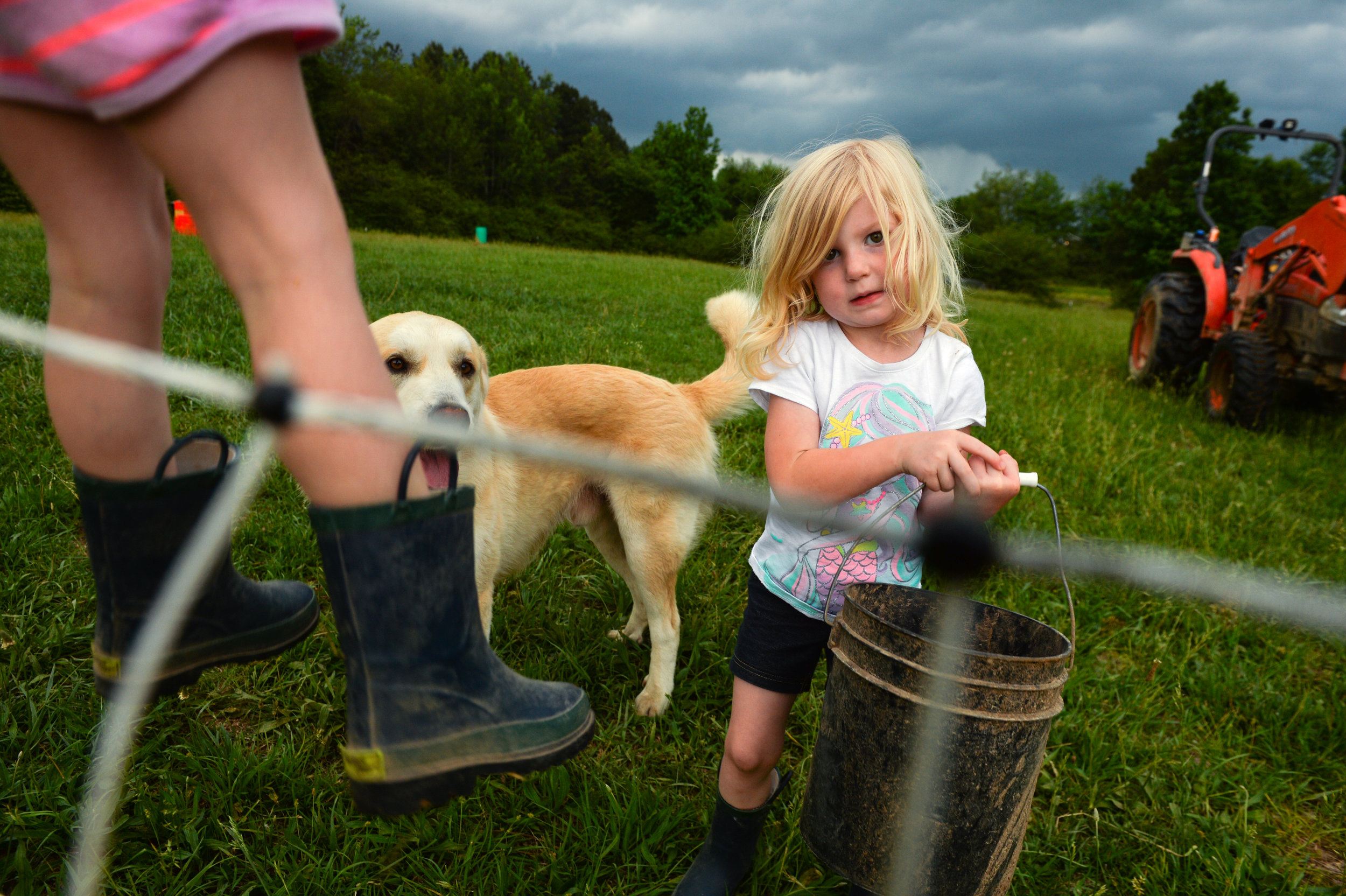













As 600 hens mill around a field on DSR Farms in Danville, Ala., the Murphy girls, from left, 3-year-old Raven, 5-year-old Dallas and 4-year-old Shelby search for eggs as they climb a plank to the coop. This is daily life for the daughters of Jesse and Jessica Murphy, who own and operate the small family farm.

Dallas and Raven stand with their father, Jesse Murphy, as he milks a cow. A typical day for the girls on the 18-acre pasture farm begins at 6:30 a.m. with the feeding of pigs, cows and chickens.

Jessica Murphy helps Shelby out of the chicken coop. This is Shelby's favorite farm chore, "I’m the best egg getter,” she said. Once common in America, the hard-working, live-off-the-land lifestyle the Murphys adopted four years ago is fading with the rise of technology and mass production. The farming population, which numbered 32 million in 1920, 25 million in 1950 and 6 million in 1980 currently stands at 2 million. According to National Young Farmers Coalition, farmers 65 and older outnumber those 35 and younger six to one. With the number of young farming families steadily decreasing — the average age of farmers in Alabama is 59.3 — fewer children are experiencing life on the farm.

Dallas helps with the collecting of eggs. A daily chore that all three girls help with. “Sometimes I wish we could sleep in and watch TV and then go back to sleep and watch more TV,” she said. “But I do love playing with the animals.”

Jessica helps Raven feed a pig a pear. She and her husband are trying to instill compassion in the girls. “I want them to learn how to treat animals good and that life is sacred. We raise these animals the way we do with the intent of harvesting their life in order to continue ours. It’s not something we take lightly,” Jesse Murphy said. ”I think growing up on a farm as a kid would be humbling. We are trying to teach our girls to respect every life.”

Raven pouts after not being able to sit in the front of the 4-wheeler while the family was working in the field.

Raven stands between the meat refrigerators in the family's small store that sits next to their home. Through the daily chores, the girls are learning responsibility, work ethic, and about the food they eat. “They are learning where everything comes from,” Jessica Murphy said. “There are some people who will eat chicken from a fast-food restaurant, but not the chicken we sell. The picture of a whole chicken being cooked in households isn’t as normal as it used to be. A lot of kids don’t grow up seeing a whole chicken. They are seeing a breast or a leg or chicken nuggets.”

Jessica helps her girls, from left, Dallas, Raven and Shelby get ready for school after a morning of farm chores.

Shelby sweeps hair from her face after saying hello to the pigs. “I’m going to be a vet doctor and I'm going to help the animals feel better, ” she said.